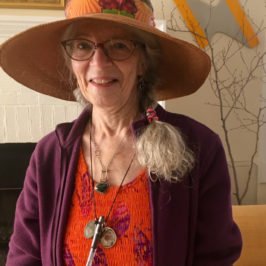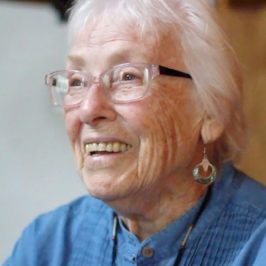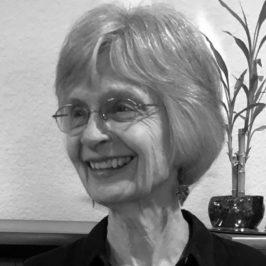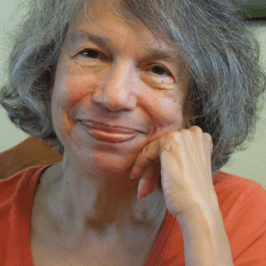
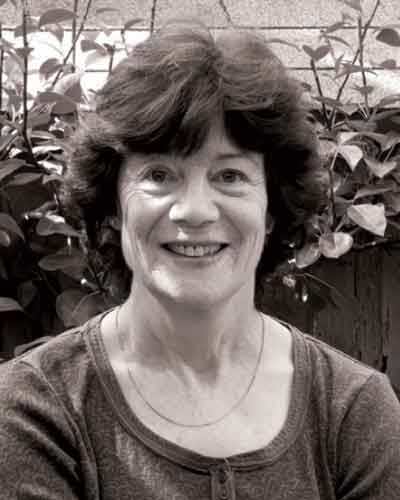
Timely wordplay, with poems by Ronald Vossler, Shelley Smithson and Helen Wickes.
7 minutes
TRANSCRIPT
This week’s podcast goes live April 2, 2024 — 4-2-2-4. It’s a palindrome! Palindromes are words — and I think numbers, too — that are the same backward and forwards. Some of the famous ones are words like “racecar” and sentences like “Madam, I’m Adam,” “A man, a plan, a canal — Panama,” and the sentence often attributed to Napoleon, “Able was I ere I saw Elba.” I couldn’t find any really clever ones like those, but I did find some. The first one is in the title: “My Great Uncle Otto, and What He Always Said about His Name” from Passager Issue 30 back in 1999.
Three times my family tried the name.
First on an uncle, until runaway horses
dragged him to an early grave, and then
on two stillborn brothers, whose lashes
never drank in the riches of this world.
But with me that name took. It was like
a fist grabbing my heart. Nothing could shake
it loose. Not that well cave-in, or
scarlet fever, or the big war over the
sea. There, in those dirty trenches, the
gas and bullets picked so many, but not
me. It seemed Gott already had His share
of Ottos.
Like a pitchfork tine, that name stuck.
Years piled up. When each of my three wives
passed on, I felt like death’s matchmaker,
finding brides for those beyond the river.
Now that I have more hellos in heaven
than good-byes here, let the next generation
come with their own names. No one
wants mine anymore. I’lI take it along,
when I join all the Ottos on the other side.
“My Great Uncle Otto, and What He Always Said about His Name.” Ronald Vossler wrote it based on stories he heard about “the old country.”
Shelley Smithson has the palindromic “elle” in her first name. She said she could always feel her grandfather’s anxiety about wanting a solid place in the world but always feeling like he was treading on shifting ground. She said she marveled at how someone could be always on edge and so full of love at the same time. Here’s her poem “It Is Always There.”
Playing in the living room on a warm Sunday afternoon
my Poppy getting out of the car when a passerby yelled
“you kike!” and I only knew it was bad because my Poppy
yelled something back and out of the other car came
a lanky teen angry and ready to fight and he took off
hitting my Poppy — then my father was down the driveway
in seconds flat and took over, with fists and tongue
till the teen drove away. I wanted the police to be called.
My father said no.
Poppy was usually nervous. He always ate food as soon
as it was served. Could not wait — not even till my Nonny
joined us at the table. He was always afraid — years earlier,
worried as a boy about there not being enough so he
just had to start eating, had to protect himself, had to fight off
whatever came his way. Told us to be proud of who we were,
where we came from.
No one wants to hand this down from one generation
to the next, but somehow the sighs and wails and screams
and worries are just on the other side of the wall.
Shelley Smithson’s poem “It Is Always There” from Passager Issue 74.
And Helen Wickes included a palindrome within one of the title words of her poem,
“Sunday Afternoon Upstairs.”
Rain zithering off the rooftops of cars,
azaleas ablaze on the porch are hot-pink zealots
against the leaden drear of March.
The five-year-old across the street is screaming
I’ll kill you, waving a broom at a lumpish kid
on the sidewalk, her mother staring blankly.
I’ll kill you, again, softly, diamond-clear, you can see
the fine mist on her skin. This kid leaks pure rage;
it slips out of her through the gloom
of this wet, no-birdsong day, unfathomable,
uncontrolled, but she well may lose it,
not wrangling her anger back until she’s forty.
All day there’s a table saw chewing wood next door
that occasionally grazes something metal and shrieks,
as if meeting its own demons face-to-face
and not prepared for them.
Helen Wickes’s poem “Sunday Afternoon Upstairs” from Passager Issue 60.
To subscribe to or learn more about Passager and its commitment to writers over 50, go to passagerbooks.com. You can download Burning Bright from Spotify, Apple and Google Podcasts and various other podcast apps.
For Kendra, Mary, Christine, Rosanne, and the rest of the Passager staff, I’m Jon Shorr.
Not pictured: Ronald Vossler

